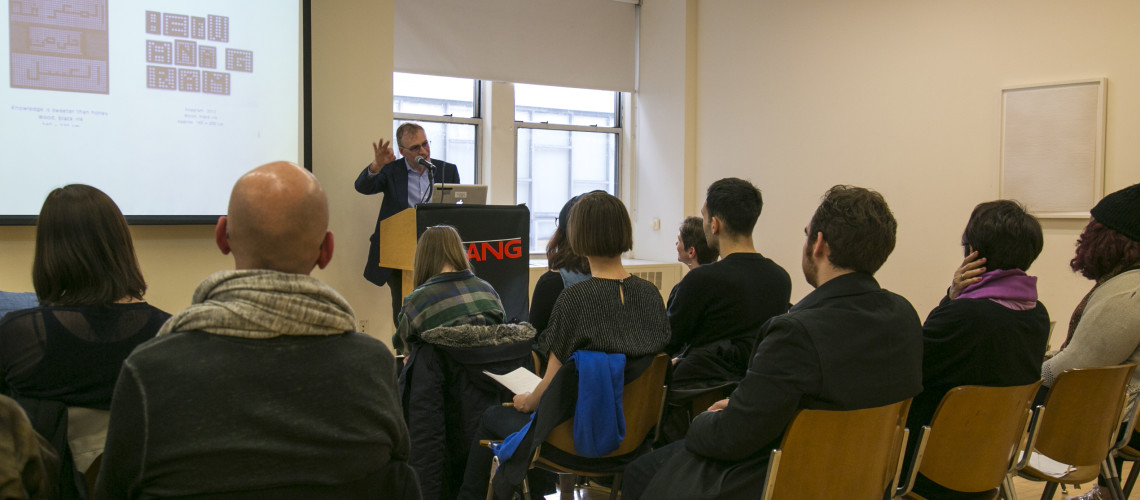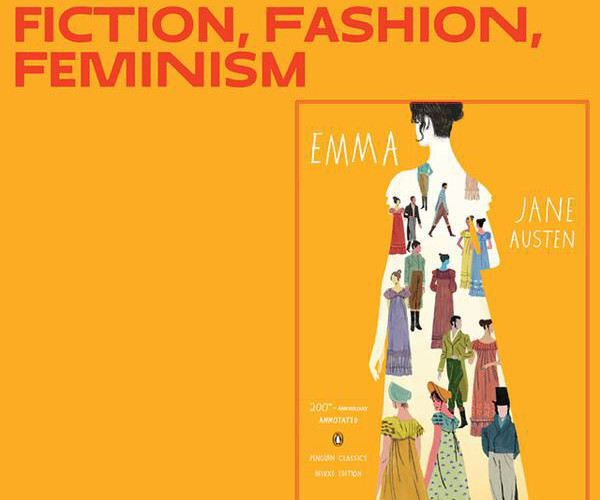
By Associate Professor Carolyn Vellenga Berman Feb. 16, 2016. In a striking inaugural lecture for the Literary Studies Department’s new series on Literature and... Read More

The UC Berkeley Comparative Literature Undergraduate Research Symposium 2016 committee is currently accepting proposals for its 5th annual conference. The conference will take place... Read More

by Hilary Ilkay In case you missed our big symposium on Emma at 200: Fiction, Fashion, Feminism, in the fall of 2015, the video... Read More
By Associate Professor Carolyn Vellenga Berman
Feb. 16, 2016. In a striking inaugural lecture for the Literary Studies Department’s new series on Literature and Design, Fordham Professor Christopher GoGwilt reframed Joseph Conrad’s Heart of Darkness on the page and on the screen. Eschewing the customary method of projecting quotes from a prose text, GoGwilt foregrounded the spacing and the effects of print by offering side-by-side views of a scanned page of the novella in book form alongside his own “starling” rearrangements of Conrad’s sentences in a non-European poetic form, to be read in vertical columns from right to left. For example:
GoGwilt had enough material in this single reframed quotation to speak for forty-five minutes about the “blank spaces” on imperial maps and the linguistic transpositions involved in map-naming, but instead he urgently refocused our attention on a seemingly transparent frame within the passage that readers of Heart of Darkness tend to overlook: the “shop-window.” He traced the implicit frames provided by Conrad’s series of overlooked windows in the text, drawing upon Isobel Armstrong’s imperial history of nineteenth-century “Victorian Glassworlds,” and Deborah Silverman’s history of Belgian Art Nouveau stained glass, with its use of the “primitive” imagery of imperial exploitation – in particular, elephant tusks – before closing with the “fading and narrow sheen of the window” where the Intended stretches her “pale hands” at the end of the narrative.
The microphone buzzed loudly at the opening of the talk, until an A/V staff member came out to adjust it. Professor GoGwilt asked, “Shall I begin again?” Although we had heard enough at that point to go on, the answer would now be: Yes.